Call Live Support
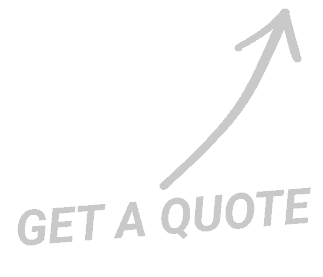
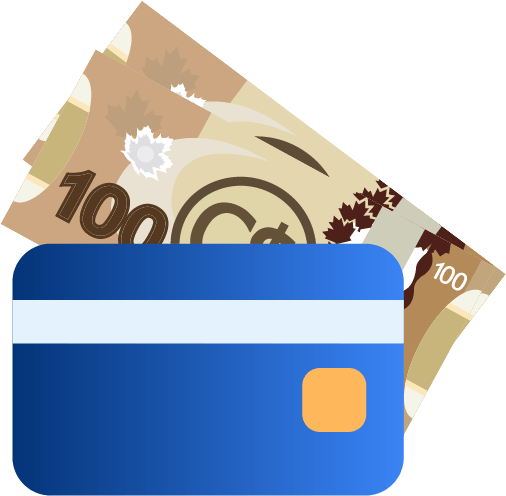
That includes an installment loan, credit card debt, and a personal loan, all of which have much higher interest rates.
If you’re one of those consumers that’s looking for a way to pay off that high-interest debt and own your home, a debt consolidation mortgage might be the solution.
Let’s look at how these mortgages work and what you need to consider before refinancing your home.
Debt consolidation is the process of combining several debts into one, usually with a lower interest rate. This lets you pay off the high-interest debt so more of your payment goes toward paying down the principal.
For the last few years, mortgage rates have been historically low, with lenders offering rates in the 2 percent range. Compare that to credit cards which typically range anywhere from 18 percent to 25 percent.
It’s clear how consolidating into a mortgage can save you money.
You could also lower your total monthly payment by making a single payment on the mortgage rather than one for each debt. This can free up cash flow for paying expenses, monthly savings, or investing.
Another side-effect of consolidating your debt is that it can help improve your credit score. Mortgage balances are weighted differently in the credit score calculation so moving balances from credit cards and other high-interest debts can help.
A debt consolidation mortgage operates as a strategic financial tool designed to merge multiple debts into a single, manageable repayment plan under your mortgage. Here’s a deeper understanding of its working mechanism:
When opting for debt consolidation, the chosen mortgage option entails the addition of the debt amounts intended for consolidation to your existing mortgage balance. The augmented funds are then strategically allocated to settle the various outstanding debts, aiming to streamline your financial obligations.
Typically, lenders incorporate a condition in the mortgage agreement, necessitating the appointed lawyer to disburse the payments to the creditors directly on the borrower’s behalf. This measure is instituted to ensure the consolidated funds are utilized exclusively for debt repayment, eliminating the risk of potential misallocation of funds by the borrower.
The direct payment to creditors by the lawyer precludes the possibility of the borrowers receiving the funds directly, which could lead to the funds being spent on unintended expenditures, leaving the original debts unsettled. Such a scenario would not only escalate the mortgage balance but also retain the existing debt, complicating the borrower’s financial situation and jeopardizing their repayment capability.
This structured approach aims to maintain a balanced risk profile, preventing any inadvertent increase in the lender’s exposure due to misuse of consolidated funds. It ensures that the consolidation effectively alleviates the borrower’s debt burden without compromising the lender’s interests, promoting responsible borrowing and lending practices.
The essence of a debt consolidation mortgage is to facilitate enhanced financial management for the borrower. By consolidating multiple debts under one umbrella, it simplifies the repayment process, reducing the stress of managing multiple creditors and varying payment schedules. It enables borrowers to focus on a single repayment commitment, often with more favorable terms, helping them regain control over their financial well-being.
A debt consolidation mortgage serves as an organized and responsible approach to managing multiple debts, enabling borrowers to streamline their financial commitments under more favorable conditions. It incorporates safeguards to ensure the proper utilization of consolidated funds for intended debt repayments, thereby fostering a balanced and sustainable financial environment for both borrowers and lenders. By enabling a clearer, more manageable repayment structure, it aids individuals in navigating their financial journeys with increased confidence and stability.
Before we get into the details about consolidating debts with a mortgage, you must understand the difference between secured and unsecured debt.
When a debt is secured, it means something of value is being used as collateral for the loan. In the case of a mortgage, your home is the collateral. If you don’t make the mortgage payments, the bank can foreclose on your home to recover their money.
An unsecured debt doesn’t require any kind of collateral. The most common example is credit card debt. In most cases, nothing is securing the money you owe on your card. The credit card company lets you “borrow” money based on how much of a risk they think there is that you won’t pay them back.
If you don’t pay the balance owing, they can take steps to collect that money but they can’t repossess something you own or foreclose on your home.
Call us today to speak to a licenced mortgage broker.
Mortgages are not all created equal. There are several different types of mortgages that you can use for debt consolidation purposes, including:
A home equity line of credit (HELOC) is another consolidation option as well. It’s similar to a mortgage in some ways but has some distinct advantages and disadvantages.
A first mortgage is the primary mortgage on your home. If you have one mortgage, as most people do, it’s a first mortgage.
There are a couple of ways you can pay off debts using a first mortgage. First, if you’re buying a new home and getting a mortgage for the first time, you can increase the amount you borrow to pay off existing debt.
Consolidating debt with a new mortgage means you won’t have to pay any penalties or fees for breaking an existing mortgage. This is one of the lowest-cost ways to consolidate your debt.
Second, you can refinance an existing mortgage to roll the other debt into it. With this option, you’re essentially borrowing enough money to pay of your existing mortgage and the other debts.
The downside of refinancing is that you’ll have to pay some extra costs. Most lenders charge a penalty for breaking your mortgage and you’ll likely have to pay some legal fees as well.
Most lenders let you access up to 80% loan-to-value (LTV) for your mortgage. This means you can borrow as much as 80 percent of the value of your home.
For example, if your home is valued at $500,000 the mortgage could be as high as $400,000 with an 80 percent LTV.
Keep that number in mind when considering whether debt consolidation is the right option for you.
A second mortgage is exactly what it sounds like — a completely separate mortgage from the primary mortgage on your home. In most cases, a different lender will hold this mortgage but it still uses your home as security.
Second mortgages are, by nature, riskier for the lender. If you default on the payments, the first mortgage holder will get paid before the second mortgage holder. As long as there’s enough equity in your home, this isn’t a problem but if they can’t sell your home for enough to cover both balances, the second mortgage holder is the one who won’t get fully paid.
Because a second mortgage presents a higher risk to the lender, interest rates are higher than other mortgages. They’re still considerably lower than most credit cards and other unsecured debt though.
Second mortgage loans often target consumers with bad credit or lower credit scores than many banks and other mortgage lenders are comfortable with. If your credit score isn’t as high as you’d like, a bad credit mortgage might be your best (or only) choice to consolidate debt.
A reverse mortgage is a type of financial instrument available to homeowners who are 55 or older. These mortgages let you pull funds out of the equity in your home, which you can then use to pay off other debt.
One of the benefits of a reverse mortgage is that you don’t need to make any payments. Instead, the balance of the mortgage increases each month — which decreases the amount of equity in your home.
When you sell your home, the amount owing on the reverse mortgage goes to the lender.
This is a good consolidation option if you’re 55 or older and on a fixed income. You won’t need to make payments on the mortgage but you can free up the payments you’re currently making on the other debt.
A home equity line of credit, or HELOC, is similar to a mortgage in most ways. It’s registered against the title of your home and is secured by its equity, just like any other mortgage. The main difference is that it’s a revolving line of credit.
Instead of getting a fixed amount of money, home equity loans let you draw out money as you need it. You can also pay it down as quickly as you like.
For example, you can use a HELOC to pay off your other debts, consolidating them into the line of credit. But instead of making lower payments as you might with a typical mortgage, you could continue paying the same total amount each month and pay off the HELOC quicker.
There are early payment penalties on most other types of mortgages so this isn’t always an option in that case.
When you’re comparing the different types of debt consolidation loans, there are several factors you should consider, including:
In some cases, your financial situation might limit your options but these are all important to keep in mind
One of the most significant differences between the various types of mortgages is the interest rate.
A first mortgage refinance has the lowest interest rate of the different types. The rate depends on the length of the mortgage, the value of your home, and various other factors but these mortgages can be as low as 2 percent.
Home equity lines of credit and reverse mortgages are generally the next lowest rates of the different choices for consolidating debt. They often use a variable interest rate that’s based on the current prime rate.
With a variable interest rate, there’s always a chance the rate could increase. Mortgage Rates in Ontario have been at historical lows for a number of years but even if they start to climb, you’ll still pay considerably less than the average high interest rate debt.
A 2nd mortgage has a slightly higher rate of the various types of consolidation mortgages. These types of mortgage are usually the easiest to qualify for and don’t require you to break your existing mortgage in first position.
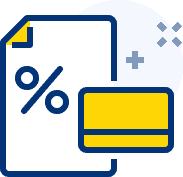
Lenders like the major banks in Canada have the most strict requirements. They’ll consider your credit score, your income, your monthly cash flow, and various other factors that affect your ability to make payments.
While the mortgage is secured by your home, they don’t want to take any risks when lending money. If there’s a chance you won’t be able to pay them back, you likely won’t qualify.
A HELOC has similar requirements but some lenders will be a little more flexible. Many HELOCs only require you to make interest payments every month, not principal, so the payments may be lower. This gives the lender a little more flexibility when deciding how much of a risk you are.
Many private second mortgage lenders focus on customers with lower credit scores and less-than-perfect credit histories. This is one of the reasons the interest rates are higher.
If you have bad credit, you’ll likely have the best chance of being approved for a second mortgage.
Reverse mortgages have age requirements but if you’re over 55, you’ll likely qualify. Because there are no monthly payments required, your ability to pay is mostly irrelevant. As long as there’s enough equity in your home to cover the amount you borrow, you’ll likely qualify.
When you use a consolidation mortgage to pay off debt, you’ll still owe the same total amount. So why would you want to consolidate it into a single balance?
There are several benefits that come from consolidation.
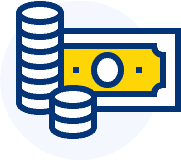
This frees up cash flow in your monthly budget that you can put towards household expenses, savings, or simply paying off your mortgage faster.
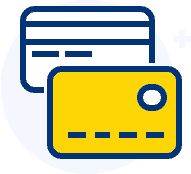
This is one of the factors that impact your credit score so paying off that debt will help improve your score.
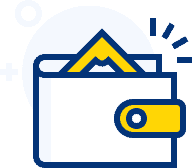
If that’s all you pay every month, virtually all of your payment goes towards interest, leaving you with debt that takes years to pay off. Consolidating it into your mortgage lowers the interest rate and if you make extra payments, they go directly towards the principal.
Now that you’ve got a better idea of the pros and cons of a debt consolidation mortgage, you’ll be able to decide if it’s the right choice. In most cases, you’ll be better off after consolidating but there are a few things to be careful of.
Due diligence is important when you make long-term financial decisions so don’t rush into anything. Take your time to consider which option is right for you.
Contact us today to discuss how our licenced mortgage brokers can help you with your debt consolidation mortgage.
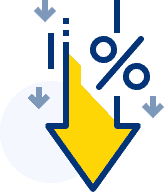
Consolidate debt into low interest rate mortgage.
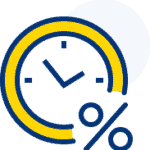
Fast home equity loan approval and closing available.
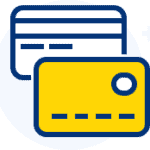
Bad credit debt consolidation loans approved regardless of credit.
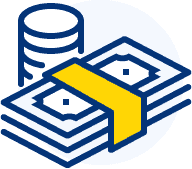
Consolidate debt regardless of your income and employment.
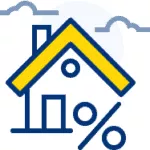
Equity based mortgage approvals for fast access to home equity.
Consolidate debt with home equity in simple step. No income or credit required for debt consolidation mortgage loans.

Get your free Debt Consolidation Mortgage Quote

Confirm property value and existing mortgage details.

Consolidate your debt in just 48 hours.

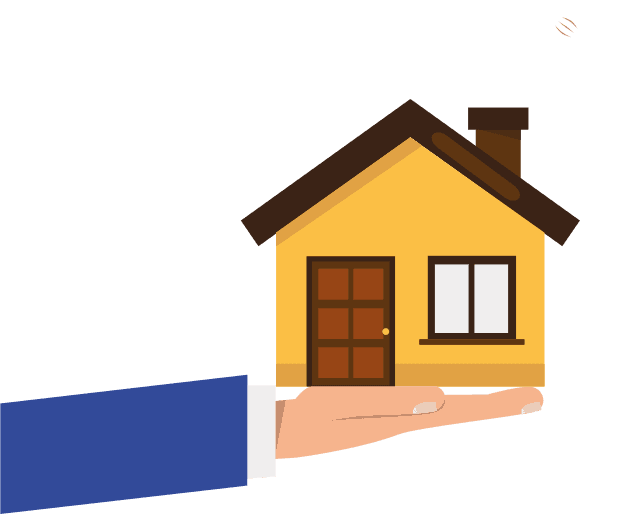
We take pride in taking the time and effort to match up every individual homeowner and homebuyer with the best mortgage financing options and rates. With access to more than 200 participating mortgage lenders, there are mortgage solutions for all types of borrowers. We listen and understand your mortgage and real estate goals, and find the best mortgage terms tailored to your specific goals to save you thousands of dollars on your new mortgage.

(No Obligation)